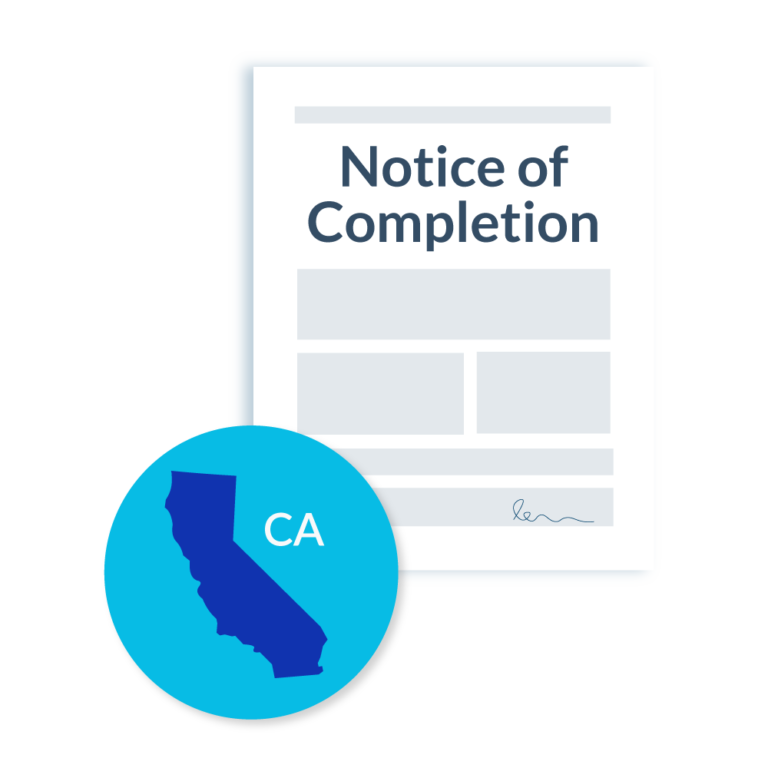In California, when a notice of completion or cessation is filed with the county recorder, it serves to shorten the lien finding period for contractors and suppliers on the project. If a notice of completion is not filed, contractors and suppliers have 90 days from final completion to file a lien. If a notice is filed, instead of 90 days, general contractors have only 60 days to file a lien, and suppliers and subcontractors have 30 days.
A notice of completion is completed by the owner or general contractor and filed with the county recorder. A copy of the notice must be sent to all contractors and suppliers who provided preliminary notices on the project.
A notice of completion is not required in California, but owners may file them to shorten the period they are vulnerable to liens.
Learn more: Should You Monitor for a California Notice of Completion?


